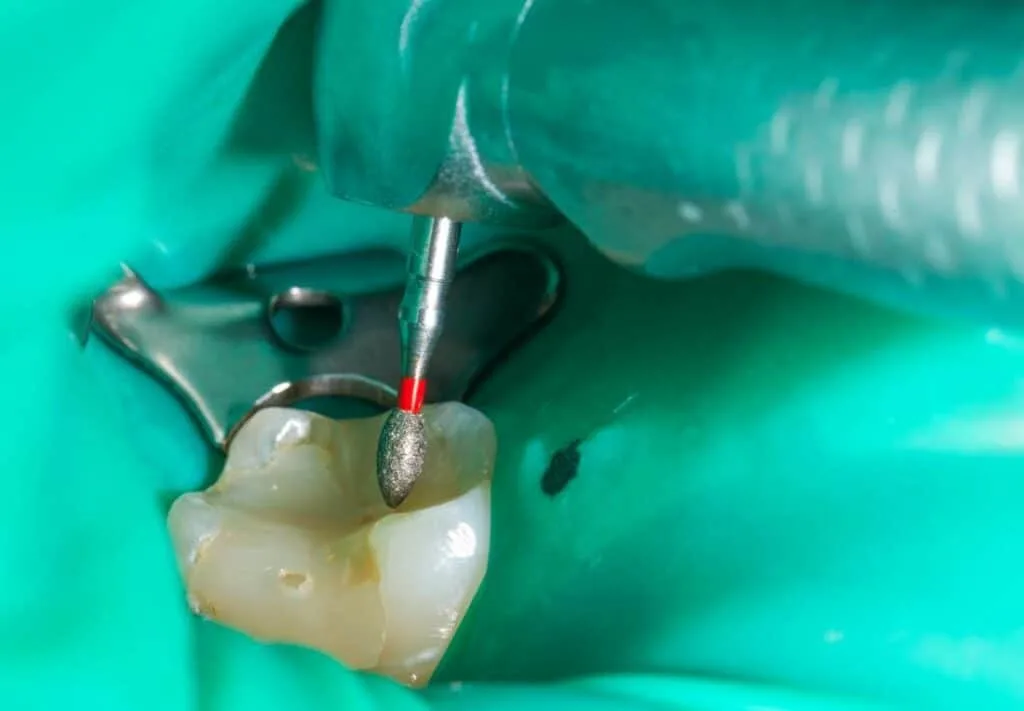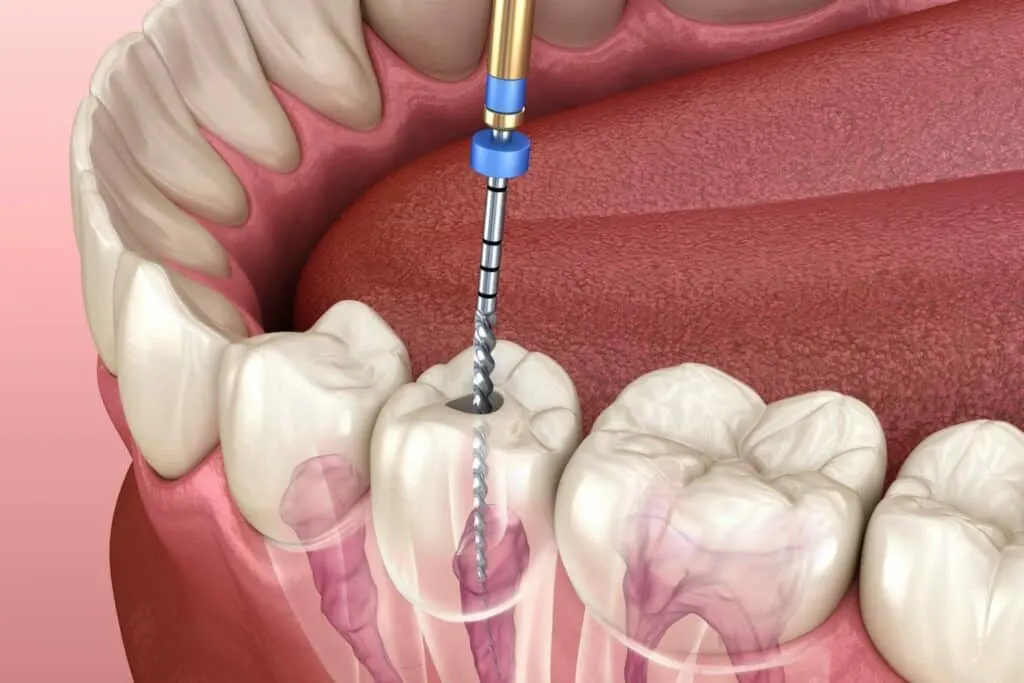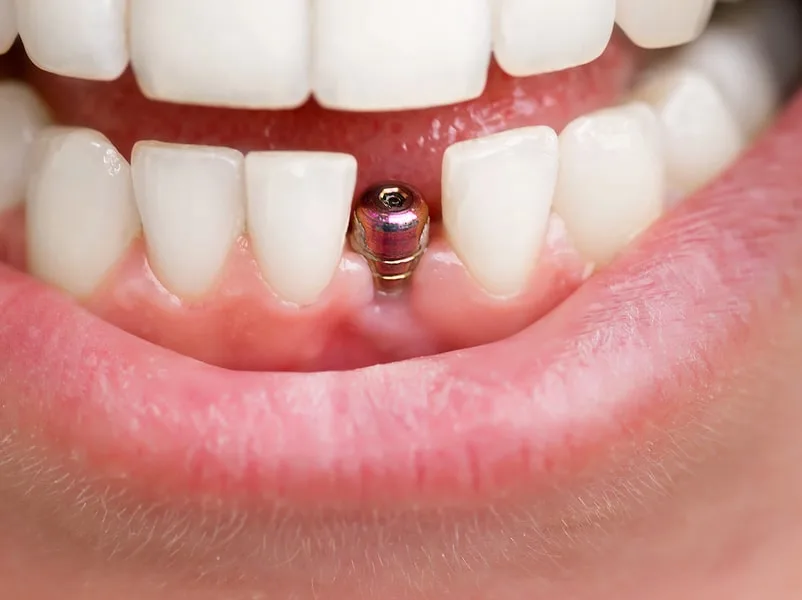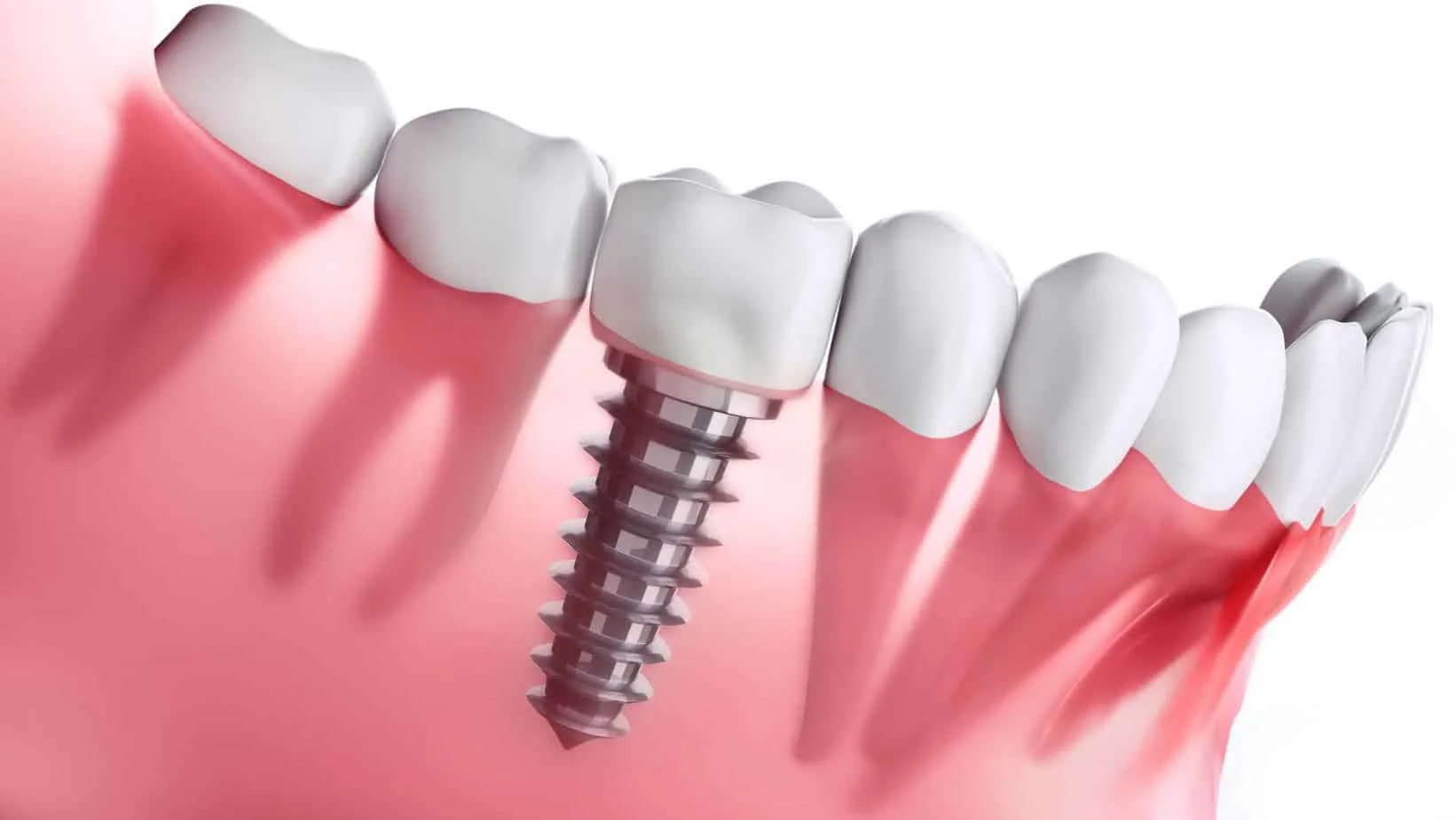- How to Find the Best Electric Toothbrush for Braces - August 7, 2021
- Best Mouth Guards for Braces: Top Brands to Consider - August 5, 2021
- Quip Toothbrush Review: What is Quip and Why Should You Choose it? - August 1, 2021
Millions of Americans suffer from oral health problems linked to poor oral hygiene, the frequent consumption of sugar, and the lack of routine dental visits.
Although tooth decay is a common cause of dental issues, many people require treatment like a root canal or dental implants because of trauma, chronic grinding, or congenitally missing teeth.
When you think of the term “root canal” or “implant” it is often associated with dental pain or discomfort. More often, people need a root canal or dental implant to get out of pain or to avoid a serious dental infection.
The good news is that root canal therapy and dental implants are actually advanced treatment techniques that are usually painless and provide a person with an improved quality of life.
There are many reasons a person may be considering a root canal or implant. Some of the most common reasons, but are not limited to, include:
- The extent of tooth decay
- Fracture of a tooth
- Restorability
- Cost
- Bone quality
- Gum condition
- Overall health
The goals of root canal treatment and dental implants are to restore your oral health both functionally and esthetically. However, there are some major differences noted between the two treatments.
Main Differences Between Root Canal vs Implants
The Main Differences Between Root Canal and Implants are:
- Root canal treatment helps save your tooth, whereas implants replace missing teeth
- A root canal may help relieve pain and infection, whereas an implant is performed after a tooth is extracted or is congenitally missing.
- A root canal procedure can be performed in 1-2 dental visits, whereas dental implants can take up to 6 months to complete.
- Implants are more costly than a root canal if you need more than one implant, but long-term is more cost-effective.
- Root canals can be performed on almost anyone, whereas implants need sufficient bone and an overall healthy immune system
- Root canals can be performed with local anesthesia, whereas implant procedures can require local anesthesia and/or general anesthesia
- Root canals can be performed by endodontists and general dentists, whereas implants can be placed by general dentists, prosthodontists, periodontists, and oral surgeons.
- Recovery time differs for everyone, but aftercare for a root canal is usually quicker than implants.
Root Canal

A root canal is an endodontic treatment that is actually no more difficult or painful than a traditional dental filling. It is recommended for patients who have severe tooth decay, infections to the gum, failure of a previous filling, or dental trauma.
When tooth decay is caught early enough, it can usually be restored with a simple filling. When decay extends to the inner layers of the tooth, it may cause pain, sensitivity, and/or infection.
A root canal is typically the final step of dental treatment before a tooth needs to be extracted. There are several advantages to getting a root canal, both esthetically, financially, and functionally.
An endodontist or general dentist can perform a root canal by removing the inflamed or infected pulp tissue, shaping and cleaning the canals, and sealing the canals to avoid bacterial contamination. Most people will need a permanent restoration or crown to protect the tooth and give it additional support.
Signs you may need a root canal
The most common signs you may need a root canal include:
- Severe tooth pain — a dull ache after chewing or when pressure is applied
- Gum swelling — an abscess is indicative of an infection near the roots of the tooth
- Tooth sensitivity — sensitivity to hot or cold substances
- Tooth discoloration — tooth color changes indicate the tooth is necrotic (dead)
Benefits of root canal treatment

There are numerous benefits of getting a root canal procedure that can have positive lasting effects on your oral and general health.
- Provides pain relief: people often find quick pain relief after a root canal because it is a bacterial infection. Endodontic treatment can help stop the spread of any infection locally and systemically.
- Comfortable eating and chewing: getting a root canal makes it more comfortable to consume hot or cold foods and beverages. Since the nerve of the tooth is removed, there is no longer any temperature sensitivity.
- Cost-effective dental treatment: a well-treated root canal can last a person several years or even decades if maintained. A root canal helps save your natural tooth from extraction and avoids teeth from shifting.
Disadvantages of root canal treatment
With any dental procedure, there are always downsides. Some of the most frequently reported are:
- Weaker tooth: a root canal requires the dentist to clean and hollow out the inside of the tooth, leaving it more brittle and subject to fracture. This is one of the main reasons a root canal tooth is reinforced with a post/core/crown.
- Cost: it is much more costly in time and finances to perform a root canal than extract a tooth. A root canal can take much longer in the chair than removing a tooth too. A root canal may cost anywhere between $800 to $1500 depending on your dentist and tooth treatment.
Dental Implants

Implants are one the most popular, sought out dental treatments in the industry to replace missing teeth. They have several advantages over other types of restorative prosthetics like removable dentures and bridges.
When a tooth is absent because of tooth decay, infection, trauma or is congenitally missing, it can cause a domino effect, affecting the rest of the mouth. To restore function and esthetics, an implant provides a permanent replacement and helps closely mimic a natural tooth in terms of feel and appearance.
An implant is a biocompatible, titanium screw that is surgically inserted into the jawbone. A connector called an abutment will bridge the implant screw to the custom dental crown that sits on top. Many people prefer implants because they are designed to strengthen your jawbone and look just like your adjacent teeth.
Teeth that are compromised from a previous large filling or a root canal, are more subject to fracture and cause pain. When the prognosis of a tooth is poor, sometimes it can become a “money pit” to invest into a tooth that simply needs to be extracted.
If your tooth has had previous root canal treatment or is fractured below the gum line, it may be worth it to have it removed and replaced with a stable dental implant.
Benefits of dental implants

There are numerous perks of getting implants when one or more teeth are missing.
- Tooth decay proof: implants are composed of titanium and porcelain so there is no need to worry about new cavities.
- Preserves your jawbone: implants osseointegrate to your bone to help preserve your jawbone instead of having it recede and deteriorate. It also helps maintain a youthful look
- Permanent prosthetic: implant success after 5 years is over 95% giving it the best chance of having it for the remainder of your life. Long-term it is the most cost-effective dental treatment to replace a missing tooth.
- Highly aesthetic: Since there is no bulky acrylic in a denture or bone receding under a bridge, implants will look and feel just like your natural tooth. The shade and shape are custom-created to give you a highly cosmetic look.
Disadvantages of dental implants
- Surgical treatment: implants require surgery, which not everyone is comfortable or qualified for. You must be in good health to get implants or their success of integrating into the bone will fail. This means anyone with chronic health conditions may not be eligible because it can compromise healing and implant success. There is also always the chance of infection that comes with a surgical treatment.
- Costly: Implants are an investment in your oral and overall health. They are usually not covered by dental insurance, therefore this is a hefty price tag. If you need more than one implant, it can cost upwards of $5,000 because of the implant surgery and crowns. This does not include any additional surgeries that may be needed like bone grafting or sinus augmentation.
Who can get dental implants?
Essentially, anyone with one or more missing teeth can get an implant. However, there are some exceptions to help make implants a success.
In order to get implants, you need to be in good overall health so that you can heal properly and an implant can osseointegrate into your bone.
For people with chronic medical conditions like diabetes or cancer, it may compromise implant healing. People who smoke or use tobacco products may also not be good candidates because they don’t heal well.
You need sufficient bone for dental implants. Without it, an implant cannot remain stable and bond with your jawbone. People with gum disease, which can lead to bone and tissue loss may need bone grafting to help give additional strength and support to the bone.
When should teeth be extracted?

Sometimes, even root canal treatment cannot save a tooth. This happens when there is excessive damage or loss of tooth structure to restore the tooth. If a tooth cannot be restored, a root canal won’t do you much good. Some indications that a tooth needs an extraction include:
- Compromised immune system
- Failure to restore a tooth with a crown
- Severe fractures or trauma
- Gum disease
- Facial swelling or infection
Root canal vs Implants
Both root canal and implants can help restore a person’s oral health when it is compromised. Treatment will depend on a patient’s needs, budget, and health.
- Cost: In the short term, it may seem like a root canal is the more affordable option. Root canals are around the equivalent cost of a single dental implant. A root canal and dental crown can average $2000 to $3000 while a single tooth implant can range from $3,000 – $5,000. However, if you need more than one implant, this cost can be substantially higher. Over time, if a root canal fails and needs re-treatment or you develop tooth decay under a crown, it will need replacement. Long-term, an implant is usually the best way to go because it is a one-and-done type of treatment whereas you will have to consider replacement costs if a root canal fails.
- Longevity: After undergoing a root canal or dental implant procedure, you should be able to use your tooth normally. Dental implants are known for their longevity, but root canal treatment also has good success rates when properly maintained. The American Association of Endodontists reports that root canals have a success rate of over 95% and in most cases, they last a lifetime. However, many people don’t properly care for their root canal teeth and will often cause failure due to tooth decay or gum disease. Dental implants can last a lifetime, although the implant crown typically needs replacement after 10 to 15 years because of wear and tear.
- Treatment: A root canal procedure usually takes 45 minutes to one hour to complete and one to three visits for a tooth to be successfully treated, including your dental crown. This will also depend on the complexity of your tooth’s canals. It is safe to say that a root canal requires fewer visits and less time to restore than implants. Implant surgery may take a few hours, but from start to finish, you can expect to have your tooth fully restored in 3 to 9 months. This is because implant surgery takes longer to heal and requires more steps than an endodontic procedure.
- Post-care: Both a root canal and implant may cause temporary swelling and pain that can be relieved with over-the-counter pain medication. Sometimes your dentist may recommend an antibiotic if there was an infection. It is recommended to eat soft foods and avoid biting into hard, crunchy foods for a few days until your site is healed. Since implant surgery requires the dentist to make an incision into the gum, you may need temporary sutures until healed. It is common for implant surgery to cause a tad more healing time than a root canal procedure.
As a dentist, I always recommend that there is nothing comparable to your natural tooth. When a tooth can be salvaged in a safe, healthy way, it is worth attempting to invest in endodontics. Root canal treatments can be very effective and can save you the time and stress of losing a tooth and possible surgery.
FAQS
Answer: Both a dental implant and root canal are an investment into your oral health both financially and time-wise. A dental implant cost may be slightly higher initially but is typically a lifetime treatment. A root canal and dental crown is a good option if the tooth is restorable, but if it fails, it may cost you more in the long run.
Answer: Both procedures may cause mild pain and localized swelling, but your dentist will administer a local anesthetic to keep you comfortable during the treatment. It is commonly advised to take over-the-counter pain medication like ibuprofen or acetaminophen following your procedure.
Answer: Chronic, uncontrolled medical problems like diabetes or cancer may temporarily inhibit you from getting treatment because you have a greater risk of infection or treatment failure. Pregnancy is also a contraindication to both treatments. Speak to your dentist about your medical history prior to treatment to determine if you are a good candidate.
Answer: If you choose to not get a root canal, you may opt for dental extraction and replace it with a prosthetic like a bridge or removable appliance. The same goes for a dental implant.
Answer: Apply an ice compress to limit swelling, take over-the-counter pain medication, limit eating hard or crunchy foods on the side of surgery, and rinse with a warm salt mouthwash as an anti-bacterial precaution. If your doctor prescribes an antibiotic or any other medication, take it as directed. Always avoid smoking as it can interfere with your treatment success and healing.
Answer: You would take care of your treated teeth just as you would your natural tooth. Brush and floss daily and maintain routine dental visits. Eat healthily and avoid using tobacco products.
Answer: Dental implants that are successful can last a lifetime that is properly maintained. A root canal tooth can also last decades and even a lifetime if you have it crowned and it is kept healthy.
The final decision
It is always a challenging decision whether to get a root canal or extraction. There are many considerations:
- Is finances an issue?
- How strongly do you feel about maintaining your natural tooth?
- Do you grind your teeth?
- Are you in good overall health?
- Are you prepared to wait several months for a new tooth?
- What area of the mouth are you treating and is it an esthetic concern?
Root canal treatment is a good option for people looking to save their natural tooth and preserve bone and gum tissue. Many people opt for a root canal if a tooth can be restored because it is more cost-effective and has a high success rate. If you chronically grind your teeth, a root canal may be the better option because grinding puts a significant amount of pressure and damage to implants.
If a tooth cannot be restored because it is broken down, fractured, or previously root canaled, a dental implant may be the preferable option. Dental implants are known to have long-term success and although initially have a higher price tag, in the long run will save you time and money.
Implants are also the closest option to your natural teeth if you need a tooth extracted, whereas a bridge or denture has its own challenges. Dental implants are known to provide the highest quality of esthetics, especially in the smile zone.

